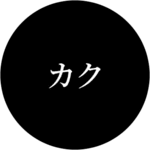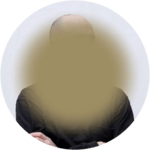
Hello! We’re Pragmatica, a design studio powering digital shifts. We enjoy exploring contentious topics within the design community.
Today, we’re sparking a conversation with top designers about
whether there is an endpoint in a designer’s professional life or a designer with any level of experience remains relevant in the market?
This is our first interview, but not the last one. Stay connected with us on Twitter for more. Here we go and and here’s what we’ve discovered this time around!

Camille Oudinot, Lead UX Groupe, work for Niji (@OudinotCamille)
All design schools have one problem > they don’t prepare you for real life events and basic adaptability and soft skills needed to survive in a corporate environment…so that plus a little design experience applied to real world problems (which include the collision of business and design, even if people don’t want to admit it), will derive in fast growth at the beginning.
Another part of design life is related to experience and obsolescence. It depends on the attitude of the designer, and how much curiosity we factor into our work. We can decide to stay comfortable, or we can decide to change paths to learn something new. You can change industries, test new tools, try to guess what the next standard will be in terms of tools and methods used…
Industry evolves really fast, but so should we, it’s kind of part of the job. You can choose to be a designer that stays in your comfort zone, and learn only when the industry kind of forces u, or you can stay alert and try to predict/adapt.
So in the end it not even depends on what kind of designer you are, but what kind of person u are you are 🙂

Mia Blume, Design Executive Coach Design Dept (@mialoira)
I think it’s far more complicated than a single cycle or path for professional designers. There’s many paths. Some based on experience and prestige, and some money, but the designers I’ve worked with that found the most fulfillment found it by following opportunities for impact. As technology and markets evolve, so does the need for design. Instead of trying to discover the charted path, focus more on defining your next chapter. Stay curious and open, and it will reveal itself.

Joshua Guo, Design Engineer at Charts Supply / Creator Figma (@JoshGuoDesign)
In my view, whether a designer has a “shelf life” in their professional cycle significantly depends on whether the designer truly understands the fundamental theories of design, rather than focusing solely on mastering tools for practical application.
At the onset of their careers in the design industry, many designers unconsciously prioritize mastering specific design software, inadvertently overlooking the essence and theoretical foundation of design. This tendency gradually shifts them from being designers to merely tool operators, closely tying their professional life cycle to the tools they use, while neglecting the evolving nature of design itself, which progresses with time, culture, and technological advancements.
Design is not just about the use of tools but more importantly about concepts, innovation, and problem-solving capabilities. Understanding the core theories of design, such as user experience, visual communication, branding, and more, allows designers to maintain their value and relevance even as the industry and technology rapidly change.
Therefore, I believe there is no fixed “expiration date” for a designer’s professional life cycle. The key lies in whether a designer can continually advance, deepen their understanding of the essence of design, and effectively apply this understanding in practice. In doing so, designers can not only maintain their professional relevance over time but also stay ahead in the ever-changing field of design.

Nick Hammond, The Calculated Creative, designer & art director (@NHammondDesign)
To me the beauty in any and all creative careers is that you constantly need to be looking at where to go next…where your next inspiration will come from, what other skills you might be interested in, who else you might need to connect with, what other projects you’d like to work on. You have to put in nearly as much work on answering your own questions and looking at the next step as you do on the current step…otherwise, yes, designers especially tend to burn out because they can’t look forward to try and get ahead of themselves and know what their next move is.
In that regard I think everyones “expiration date” is different and is entirely dependent on what aspect of design they’re involved with, how large their network is, and how much drive they have to pursue the next project.
If you’re not a go-getter and if you aren’t interested in continued education / reinventing yourself then it will absolutely be a short road.

Daniel Robert, Creative director of digital in We are Zag (@thisisgrey, http://thisisgrey.com)
Designers. Don’t stop learning. Don’t stop playing. Don’t take yourself too seriously (no life depends on this job). Don’t stop sincerely helping your clients. Don’t stop showing up and replying to emails. Cobblers grew old mending shoes, we will grow old creating layouts. Stay lean, save money, have fun.
So what we got in outcomes: Designers, embrace change, stay curious, make an impact, there are varied paths in the journey of a designer’s career.
A heartfelt thanks to Camille Oudinot, Mia Blume, Joshua Guo, Nick Hammond, and Daniel who approached the idea with openness and engagement in discussions on this topic.
Which comment resonated with you the most? And what are your thoughts on this topic?
Welcome you to take a closer look at our team on social media in Twitter, Behance, Instagram, LinkedIn
5 Lead Designers about an expiration date of creative career path was originally published in UX Planet on Medium, where people are continuing the conversation by highlighting and responding to this story.